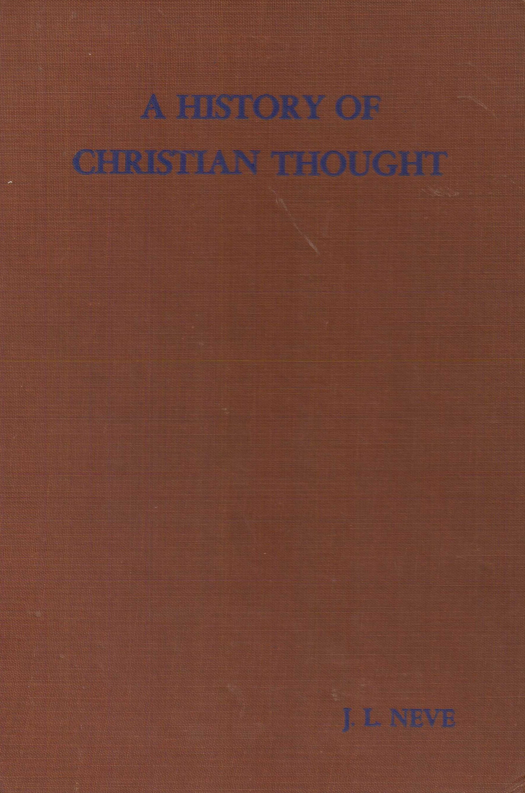The history in doctrine, or in wider conception the History of Christian Tought, is a study of great importance for theologians and pastors. It came into existence about the beginning of the nineteenth century. At that time of rationalism its purpuse was to show that the confessional heritage of the church could not be mantained. But soon, with the revival of evangelical theology, the conservatives also adopted this branch and put into the service of theological conservatism.
V.1 - Book One: the ancient church. Introductory matters. Precursory thought. Christianity of the post-apostolic fathers. Greek apologists. Perversions of christianity. Source and norm of truth, or fundation of the dogma. Episcopate as guardian of the truth and the christian life. Early ideas of the church. Old catholic theologians. First steps into the ecumenical age. Doctrine of the trinity. Doctrine of two natures and one person in Christ. Problems of anthropology and soteriology. Sacraments. Concluding observations: the christianity of the east and of the west. V.1 - Book two: the middle ages. theology of Gregory the Great. Development of papal supremacy. Awakening of the new piety. Beginning and rise of scholantism. Doctrinal issues in the eleventh and twelfth centuries. Church and theology in the thirtheeth century. Teaching of sin and grace. Sacraments. Church and state in the fourteenth and fifteenth centuries. Theology and piety in the later middle ages. V.1 - Book Three: the reformation. Luther as reformer. Zwingli and his theology. First conflict over the Lord's Supper. Melanchton the colaborer or Luther. Earliest confessional writings of lutheranism. Bucer, Calvin, and the confessional standards of lutheranism. Controversies in the lutheran church and their settlement in the formula of concord. Age of strict orthodoxy in the lutheran church. Doctrinal development within roman catholic theology. V.2 - Book Four: deveopments in post-reformation theology. George Calixtus and the principles of syncretism. Arminianism in Holland. Arminianism in England. Theology of the "inner light". English deists: first steps in radical liberalism. French naturalists of the seventeenth and eighteenth centuries. German racionalism. Old socinians or unitarians. V.2 - Book Five: New attitudes to religion and christianity. Immanuel Kant: his ideas on religion. German indelism and its relation to christianity. Scheliermacher. Theology and theologians under the inflluence of Hegel's philosophy. Confessional thology. Mediating theology: the biblists. Neo-kantianism and the ritschilan theology. From Ritschl to Barth. Theological thought between the two great wars. Introdudtory remarks. Early evangelical and the early orthodox parties. Coleridge: the early Oriel school. Oxford Movement. Philosophy and the negative movement. Consolidation of liberal forces. Scottish thology. Non-conformist theology. Theological development in the anglican church. British philiosophy. from 1860 to present. Theological movements in the twentieth century: the liberal protestant, and catholic traditions. Facts ans forces in american theology. Philosophical thought in America. New England theology: Jonathan Edwards and his school. Liberal movement in american theology. Conservative forces in american calvinism during the nineteenth century. Lutheran theology. Twentieth century.
U15163 - U15164


